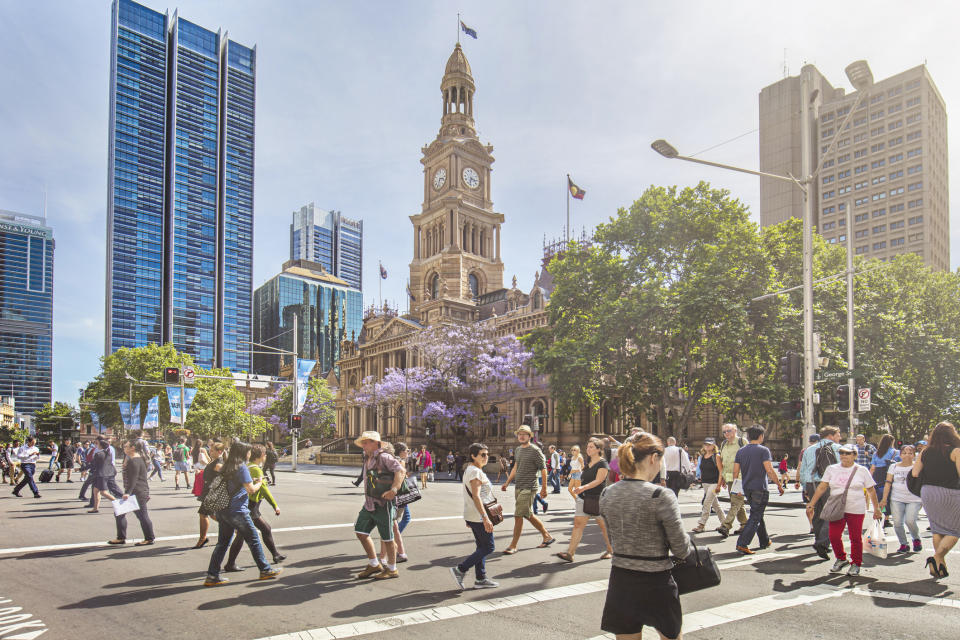No, migrants aren’t stealing our jobs, says report

Immigration is an issue that can be contentious, or even divisive, all around the world. One argument against it is that migrants ‘steal’ local jobs, with fears that Australians are crowded out of the labour market.
But a new report by the Committee of Economic Development of Australia (CEDA) has put this claim to rest, arguing that it's “unfounded”.
Temporary skilled migrants have in fact pushed up wages and made for a more productive, prosperous Australia, according to CEDA.
“Recently arrived migrants have not had a negative impact on the wages or participation rates of Australian-born workers.
“On the contrary, our results indicate that, in some cases, an increase in migrant concentrations in certain levels of qualification and experience is associated with a positive impact on wages and employment.”
The new analysis builds on other research that finds no evidence that the entry of migrants has struck a blow on the local workforce.
In early 2019, there were nearly two million temporary migrants in Australia.
Related story: Your stance on immigration could be holding back property price growth
Related story: Why Australia needs to cut TOURISTS, not just migrants
Related story: Does Australia need more people? Most Aussies don't seem to think so
Shattering the myths
A proportion of concerns on the issue of temporary skilled migrants centre around the impact to local workers regarding the 482 (and previously 457) visas.
“The average base salary for a skilled temporary visa holder is quite high at $95,000, meaning these workers are unlikely to undercut local employment terms and conditions,” said CEDA chief Melinda Cilento.
Skilled migrants aren’t exactly arriving to Australia in droves, either: temporary skilled migrants of working age make up less than one per cent of Australia’s labour force.
They’re also not swooping in where jobs are scarce. According to the report, 70 per cent of temporary skilled visa holders live in NSW and Victoria, which have the lowest rates of unemployment in the country at 4.4 per cent and 4.7 per cent respectively, compared to the national rate of 5.2 per cent.
And finally, they pay their taxes but don’t receive any free or subsidised government services, meaning they boost the budget’s bottom line.
“Temporary migrants also contribute to the economy by paying taxes and spending in the communities in which they live, increasing demand for goods and services and supporting local economic activity and jobs,” Cilento said.
Migrants are good for business
Contrary to popular misconceptions, skilled migrants are “critical” to business growth, the economy and the workforce.
In the first instance, temporary skilled migrants plug in skills shortages in critical areas such as engineering and cyber security.
As a flow-on effect, importing unique overseas experience builds up the skills set of Aussie workers, according to Cilento.
“Temporary migration also lifts the skills of the broader workforce through the transfer of knowledge and expertise and by introducing new skills, in some instances enabling Australia to build critical new workforces, for example the growing cyber security industry in Australia,” she said.
According to the report, more than half of Australia’s temporary skilled migrants work in the sectors of accommodation and food services; information, media and telecommunications; professional, scientific and technical services; and other services, such as personal care or mechanical repair.
The top three citizenships are from the UK, India and the Philippines, and nearly all of them (96 per cent) are under the age of 50, compared to 67 per cent of the Australian population.
Migration critical to Australian prosperity
Immigration has underpinned Australia’s near-three decades of uninterrupted economic growth: today, nearly a third of the national population was born overseas, and nearly half of all Australians have at least one parent who was born in another country.
“Skilled migration supports business investment and productivity which are vital for keeping our economy strong.
“Incomes in Australia have been stagnant and lifting productivity can help lift incomes across the community.”
However, changes need to be made so that the broader community has confidence in the migration system and businesses can make the most out of experienced migrants to help build local skills, according to the Cilento.
Make your money work with Yahoo Finance’s daily newsletter. Sign up here and stay on top of the latest money, news and tech news.

 Yahoo Finance
Yahoo Finance 
